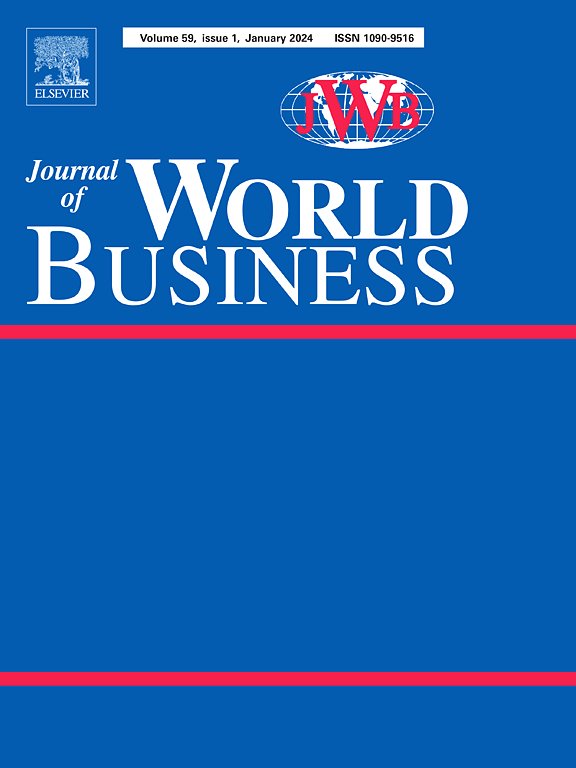南非经济精英与种族隔离时代制裁期间和之后外国跨国公司资产所有权的变化
IF 8.8
1区 管理学
Q1 BUSINESS
引用次数: 0
摘要
我们从历史的角度来研究对南非种族隔离制度的制裁,发现外国跨国企业(MNEs)在制裁期间屡屡受损,几乎都是当地经济精英的损失。当跨国企业离开时,他们通常会将资产出售给当地经济精英,以挽回一些价值。为了确保继续运营(从而获得付款),多国企业在制裁期间继续支持买家。制裁结束后,如果多国企业回购资产,当地精英又会从中获益。在制度薄弱的情况下,个人关系非常重要,我们利用精英理论来探讨这种关系是与谁建立的,从而做出了贡献。本文章由计算机程序翻译,如有差异,请以英文原文为准。
The South African economic elite and ownership changes in foreign multinationals’ assets during and after Apartheid-era sanctions
Using a historical lens to investigate sanctions against Apartheid South Africa, we found foreign multinational enterprises (MNEs) lost out repeatedly during sanctions, almost always to the local economic elite. When MNEs departed, they often sold their assets to the local economic elite to salvage some value. To ensure continued operations (and thus payments to them), MNE continued supporting buyers during the sanctions era. If MNEs repurchased their assets once sanctions ended, the local elite again benefited. Personal ties matter in institutionally weak contexts, and we make a contribution by using elite theory to interrogate with whom such ties are forged.
求助全文
通过发布文献求助,成功后即可免费获取论文全文。
去求助
来源期刊

Journal of World Business
BUSINESS-
CiteScore
16.50
自引率
11.20%
发文量
73
期刊介绍:
The Journal of World Business holds a distinguished position as a leading publication within the realm of International Business. Rooted in a legacy dating back to 1965, when it was established as the Columbia Journal of World Business, JWB is committed to disseminating cutting-edge research that reflects significant advancements in the field. The journal actively seeks submissions that propel new theoretical frameworks and innovative perspectives on International Business phenomena. Aligned with its domain statement, submissions are expected to possess a clear multinational, cross-border, or international comparative focus, while remaining pertinent to the study of management and organizations. JWB particularly encourages submissions that challenge established theories or assumptions, presenting pioneering or counterintuitive findings. With an inclusive approach, the journal welcomes contributions from diverse conceptual and theoretical traditions, encompassing allied social sciences and behavioral sciences. Submissions should either develop new theories or rigorously test existing ones, employing a variety of qualitative, quantitative, or other methodological approaches. While JWB primarily caters to scholars and researchers, it values contributions that explore implications for Multinational Enterprises and their management, as well as ramifications for public policy and the broader societal role of business.
 求助内容:
求助内容: 应助结果提醒方式:
应助结果提醒方式:


